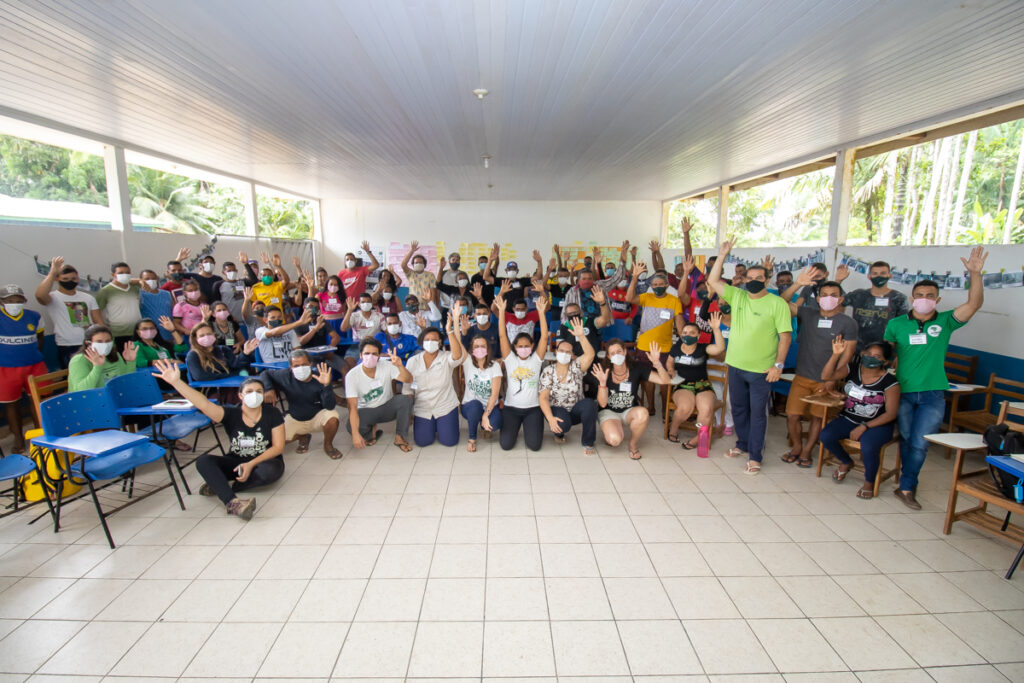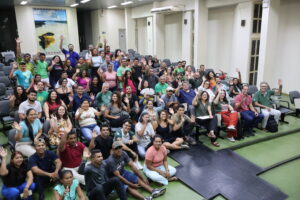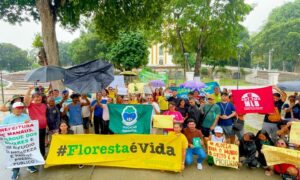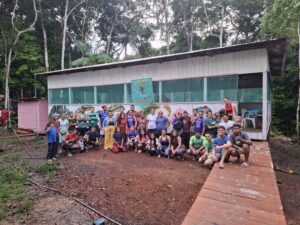The meeting held by IPÊ was attended by approximately 70 people and discussed data from species monitoring to propose new interpretations and actions for their conservation.
Por Bernardo Oliveira

The Mid- Juruá region can be considered a model for the Amazon. There are many projects that make the place something different from what is seen in other corners of the biome. And the most important thing: these initiatives came from people who actually live in the forest and enjoy its natural resources. These are the people who carry out actions such as arapaima management, chelonian conservation, and vegetable oil extraction. And, at the same time, they organize themselves to improve the quality of life of the local population. Conservation and sustainable development guide all the work.
It was thinking of helping in this process, led by ribeirinhos from Resex Médio Juruá and the Reserva de Desenvolvimento Sustentável Uacari (AM) that the Institute for Ecological Research (IPÊ), ICMBio, the State Secretariat for Environment and Sustainable Development of Amazonas (SDS/AM) along with partners held the “Encontro de Saberes” Meeting in the Pupuaí community, Resex Médio Juruá. The meeting took place on November 11th and 12th, and aimed at promoting dialogue among ribeirinhos, with their traditional knowledge, researchers, with scientific knowledge, and managers, with legal-administrative knowledge. The proposal was to exchange information to further improve the execution of these management and environmental conservation projects.
Leonardo Rodrigues, Pedagogical Coordinator of the Projeto de Monitoramento Participativo da Biodiversidade (MPB), explains that the meeting was thought up because the institutions realized that the stages of debate, discussion, and passing on of the information obtained by the monitoring were not enough.
“We started to think of alternatives to have this conversation about the information produced in the monitoring. This is how the proposal of the Knowledge Meeting about biodiversity monitoring came about, where we take the data and the analyses produced by the researchers and dialogue with the managers and monitors about the interpretations of these analyses.”, says Leonardo.
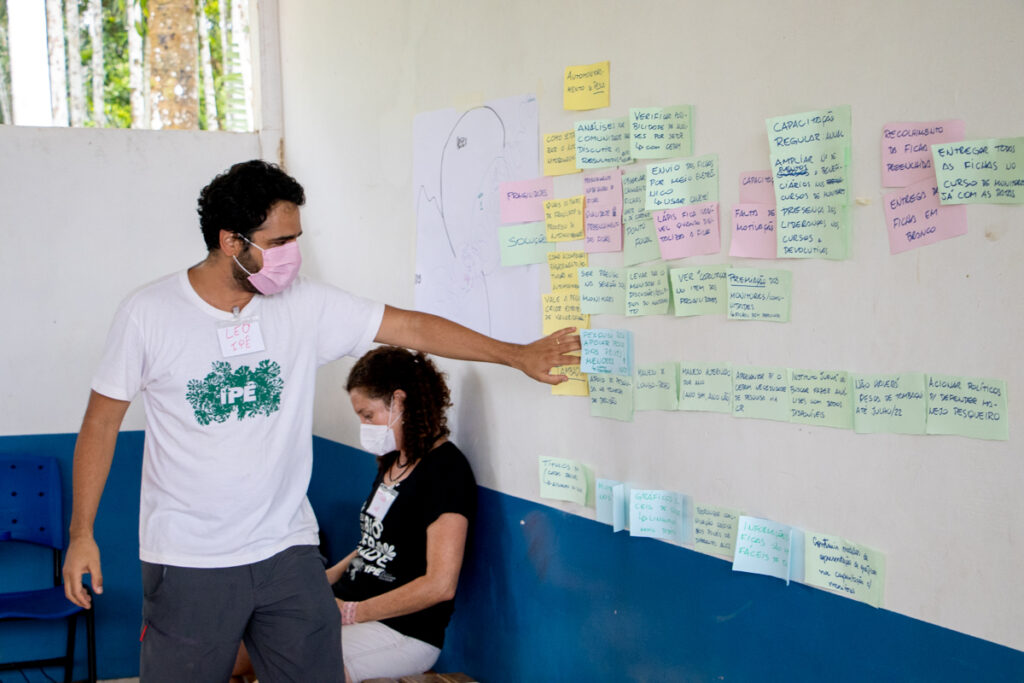
For Leonardo, the meeting proposed new perspectives on this information, based on this dialogue between traditional knowledge, scientific knowledge, and legal-administrative knowledge, new understandings and new uses for monitoring information can be reached. This way, it becomes possible for this data to reach a more hidden society, beyond these key monitoring actors.
Three monitoring protocols were worked on: self-monitoring of fishing, arapaima, and chelonians. The purpose of the monitoring is to produce information that can be used by management and residents, as well as in scientific research.
“The set of information accumulated in these three protocols was brought and presented and we were able to create some new interpretations, clarify some doubts from side to side: doubts from the management, doubts from the research, doubts from the monitors, and now we will elaborate some actions on issues that we realize are points of attention for decision making, the next steps from now on,” says Leonardo.
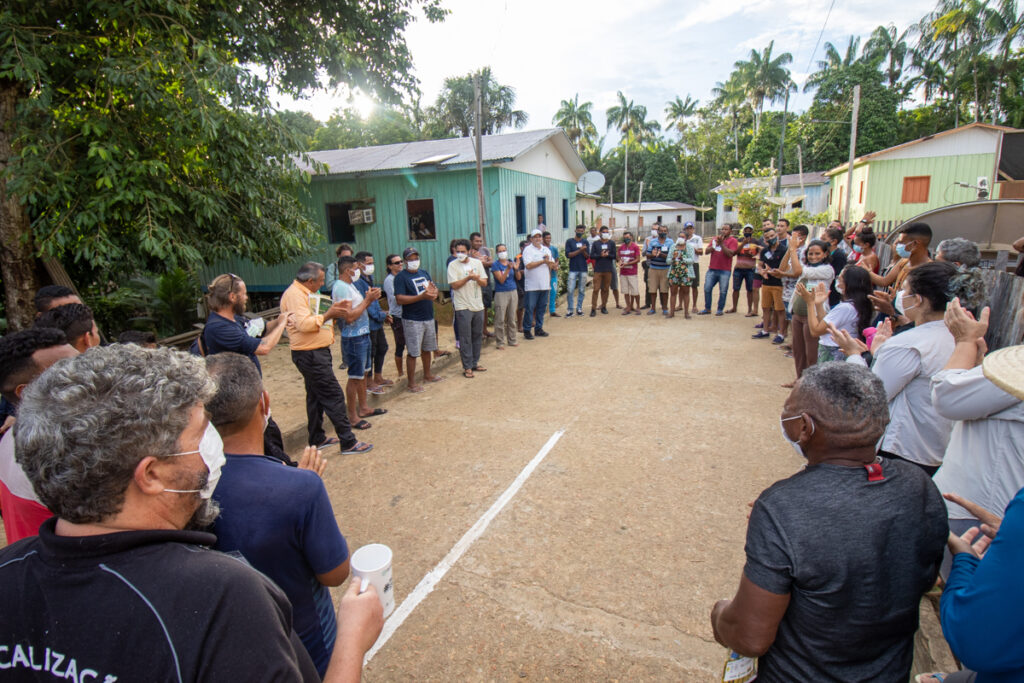
The meeting was attended by approximately 70 people, among residents, managers and researchers, and about 50% of them were young people and women. “This is very positive for monitoring, for management, and for the communities. We are talking about a dialogue of knowledge and there is knowledge that is specific, there are looks that are specific, when we get a more diverse and better represented public, we have a broader dialogue of knowledge and that allows multiple looks at the issues that are being debated.
“Médio Juruá is an important space of example and reference for social participation, in the search for the conservation of socio-biodiversity in the conservation units. Thinking nationally, here is a different place, and with this we can have deep, rich conversations. I leave very satisfied”, adds Leonardo. This work in Mid-Juruá and several other regions resulted in a book, available for free download.
